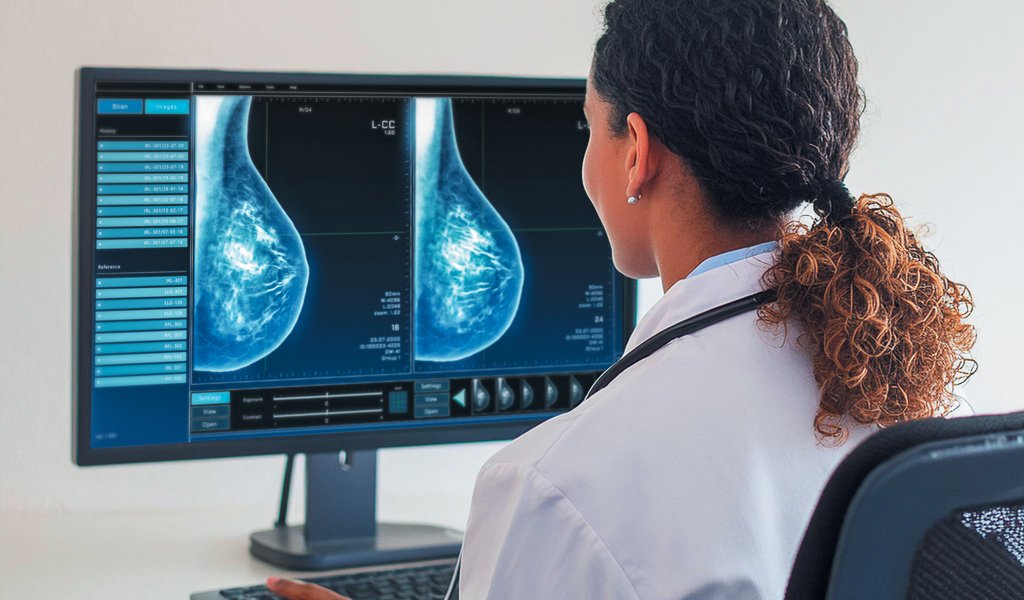With every day that passes, artificial intelligence (AI) is radically changing more areas of society, from medicine and business to politics, learning and beyond. Keeping pace with its capabilities and learning how we might safely use it in our everyday lives need careful consideration, as Rebecca Erskine explores.
MOST of us are already using AI to some extent, even if we do not realise it. We no longer rely on well-thumbed road atlases to get us from A to B. Instead, we put our trust in GPS navigation systems, which find the best route based on real-time traffic conditions. We use voice searches like Google Alexa for the latest weather report, cricket score or to play a certain song. We tolerate the initial responses generated on the Live Chat of our bank’s website as we wait for a human agent to become available. For the most part, we understand that these AI shortcuts make our lives easier and can forgive the odd anomaly in results or responses, however infuriating they may be.
One of the earliest definitions of AI can be traced back to 1955. The man considered the father of AI, emeritus Stanford Professor John McCarthy, referred to it as ‘the science and engineering of making intelligent machines’. More recently, IBM defined it as ‘the technology that enables computers and machines to simulate human intelligence and problem-solving’.
Particularly over the last two years, AI progress has taken place at such a rate that the policy and legislation needed to protect us all have struggled to keep pace.
The launch of Open AI’s ChatGPT (Chat Generative Pre-Trained Transformer) in November 2022 signalled a seismic shift in our understanding of what is possible. Within two months of launch, this chatbot technology, designed to process our natural human language and generate an appropriate response, had attracted some 100 million users. Even the free version of ChatGPT now offers results that many would consider adequate. Its uses are pretty universal.
Posing the question, ‘What are the most asked questions on ChatGPT?’ generated a list of varied responses including general enquiries about ChatGPT, help with homework and assignments, and seeking advice on personal issues such as relationships, career decisions and health concerns. An encyclopaedia, Google search, study aid and agony aunt all rolled into one, it would seem!
The ChatGPT technology can produce a response within a matter of seconds. It is able to do so because it has been trained on the most appropriate responses from an extensive body of text from a wealth of sources including books, news articles and scientific journals. (It is an approach that has proved controversial, with the New York Times leading the charge that using source material in this way is an infringement of copyright. The outcome of its lawsuit against OpenAI and its main financial backer Microsoft is much awaited.)
Its wide breadth of capabilities makes ChatGPT an attractive tool for businesses forever seeking to increase production and reduce costs.
The report1 ‘Redefining Intelligence: The Growth of AI Among Small Firms’, published by the FSB (Federation of Small Businesses) in March 2024, aimed to gain an understanding of AI by conducting a survey of its members. Some 55% of those surveyed recognised AI’s benefits, with 20% having already used it and many registering their apprehension, not just in terms of lacking the knowledge to use it appropriately but in how to manage security risks and protect intellectual property. The establishment of the UK’s first research institute to focus on the safety of autonomous systems, the Institute for Safe Autonomy2 at the University of York, seeks to address these fears.
Concerns aside, there is little doubt that the meteoric rise of AI means we are living through very exciting times. Perhaps one of the most welcome developments is in the application of AI in our resource-strapped national health and care system.
There are countless examples.
AI has the capability to analyse huge amounts of patient data, quickly identifying trends in a fraction of the time it would take a human team. Its accuracy rates are equally as impressive. Research published in The Lancet Oncology in August 2023 found AI-supported mammogram reading3 can detect 20% more cancers than the standard double reading by two radiologists.
AI has also found application in many other diseases. In October, Chesterfield Royal Hospital NHS Foundation Trust was announced as one of 64 NHS hospitals in England to receive a Government investment of £21 million in AI technology to accelerate the diagnosis and treatment of lung cancer.
AI is also being used by The Royal to diagnose strokes through the use of a “RapidAI” solution. Colonic polyps are being identified too using CAD (or Commuter Aided diagnosis) technology which combines elements of AI and computer vision with radiological and pathology image processing.
And The Royal is also trialling AI breast screening, along with other hospitals.
The care sector has seen developments, too, with ‘care bots’, designed to help people with everyday activities such as getting dressed and fed, thereby tackling the shortage of care workers.
There is certainly a compelling case for using AI when it comes to replacing highly labour-intensive processes, as the Peak District National Park can testify. Scientists, planners, policy-makers and land managers rely on land cover maps for measuring and monitoring the state of natural landscapes, whether they consist of moorland, grassland or woodland. These maps are typically created from aerial photographs of habitats and species and are a critical tool in informing landscape ecology, climate change mitigation and conservation work.
Producing the maps has, historically, been both expensive and pain-staking. The last time a detailed land cover census for National Parks was carried out, in 1991, it involved interpreting aerial photography from the early 1970s and late 1980s. Mapping all UK National Parks took a research team nearly four years.
Through a partnership between the Peak District National Park, Cranfield University and the Alan Turing Institute4, deep-learning AI is being deployed to expertly label natural photography and create more detailed, higher-resolution maps. The process is truly transformative and can be completed within a day.
The capabilities of AI mean it can achieve great things. It can significantly improve medical diagnoses and therefore outcomes, take on simple tasks that free up humans for other activities, help look after the vulnerable, and analyse data at lightning pace.
It also has a darker side, with social media already awash with deepfake images of world leaders and celebrities, and cases of fake voice messages of loved ones, seemingly in danger, extorting money from family members.
To end on a lighter note, AI is still lacking when it comes to the nuances of human interaction. In an email to a colleague recently, I commented on a momentary lapse in concentration and wryly wrote, ‘Taxi for Rebecca’ (a more modern-alternative perhaps to ‘I may as well pack up and go’). ‘Would you like to book a flight?’ was AI’s generated response. Perhaps British irony will prove the biggest match yet for machine learning…
Editor’s Note: AI is one of many topics that businesses in Chesterfield, North East Derbyshire and the Derbyshire Dales can explore at Accelerator workshops, funded by the UK Government through the UK Shared Prosperity Fund and delivered by East Midlands Chamber bit.ly/AcceleratorEvents
1. Redefining Intelligence: The Growth of AI Among Small Firms: FSB report authored by Chris Russell, Senior Policy Manager and Emelia Quist, Head of Policy Research https://www.fsb.org.uk/resource-report/redefining-intelligence.html
2. Institute for Safe Autonomy https://www.york.ac.uk/safe-autonomy
3 Artificial intelligence-supported screen reading versus standard double reading in the Mammography Screening with Artificial Intelligence trial (MASAI): a clinical safety analysis of a randomised, controlled, non-inferiority, single-blinded, screening accuracy study https://www.thelancet.com/journals/lanonc/article/PIIS1470-2045(23)00298-X/abstract
4. https://www.peakdistrict.gov.uk/learning-about/news/current-news/peak-district-national-park-pioneers-using-artificial-intelligence-to-monitor-the-landscape






